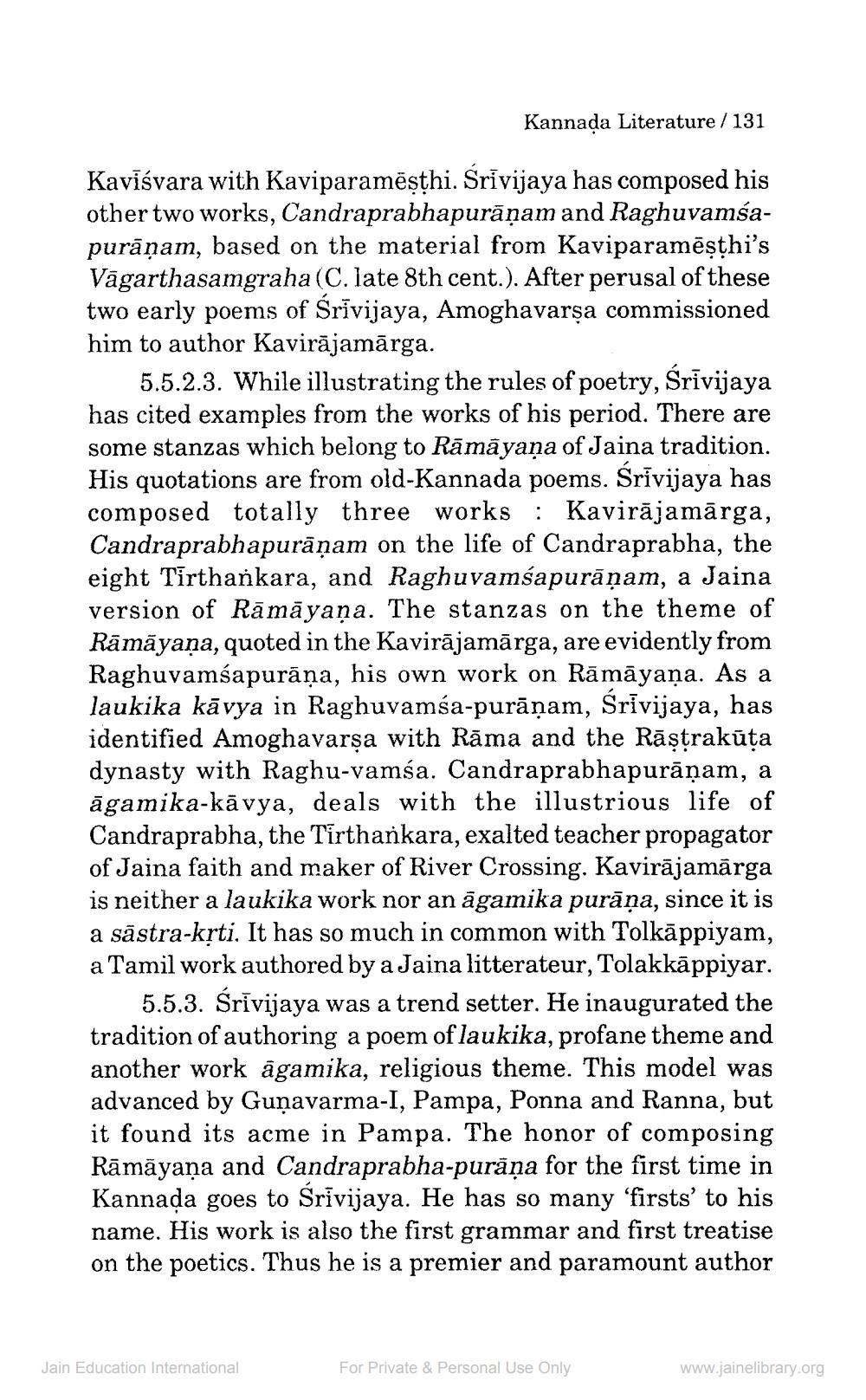________________
Kannada Literature/131
Kaviśvara with Kaviparamēsthi. Srivijaya has composed his other two works, Candraprabhapurāņam and Raghuvamsapurāņam, based on the material from Kaviparamēşthi's Vāgarthasamgraha (C. late 8th cent.). After perusal of these two early poems of Srivijaya, Amoghavarşa commissioned him to author Kavirājamārga.
5.5.2.3. While illustrating the rules of poetry, Srivijaya has cited examples from the works of his period. There are some stanzas which belong to Rāmāyaṇa of Jaina tradition. His quotations are from old-Kannada poems. Srivijaya has composed totally three works : Kavirājamārga, Candraprabhapurāņam on the life of Candraprabha, the eight Tirthankara, and Raghuvamsapurāṇam, a Jaina version of Rāmāyaṇa. The stanzas on the theme of Rāmāyaṇa, quoted in the Kavirājamārga, are evidently from Raghuvamsapurāņa, his own work on Rāmāyaṇa. As a laukika kāvya in Raghuvamsa-purāṇam, Srivijaya, has identified Amoghavarşa with Rāma and the Rāştrakūta dynasty with Raghu-vamsa. Candraprabhapurāṇam, a āgamika-kāvya, deals with the illustrious life of Candraprabha, the Tirthankara, exalted teacher propagator of Jaina faith and maker of River Crossing. Kavirājamārga is neither a laukika work nor an āgamika purāņa, since it is a sāstra-krti, It has so much in common with Tolkāppiyam, a Tamil work authored by a Jaina litterateur, Tolakkāppiyar.
5.5.3. Srivijaya was a trend setter. He inaugurated the tradition of authoring a poem of laukika, profane theme and another work agamika, religious theme. This model was advanced by Guņavarma-I, Pampa, Ponna and Ranna, but it found its acme in Pampa. The honor of composing Rāmāyaṇa and Candraprabha-purāņa for the first time in Kannada goes to Srivijaya. He has so many 'firsts' to his name. His work is also the first grammar and first treatise on the poetics. Thus he is a premier and paramount author
Jain Education International
For Private & Personal Use Only
www.jainelibrary.org




